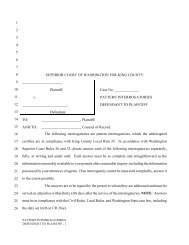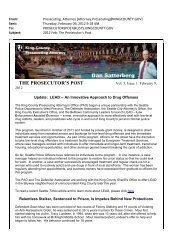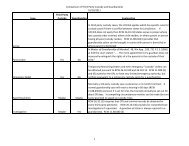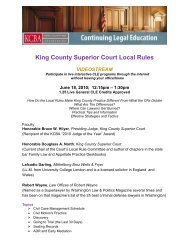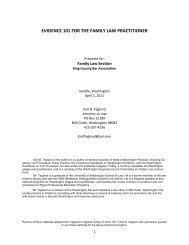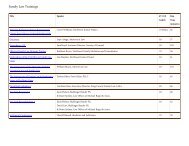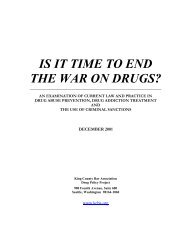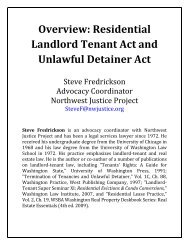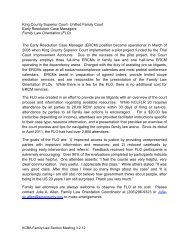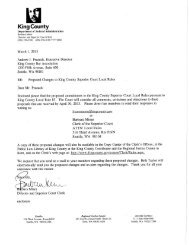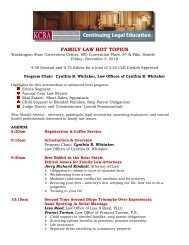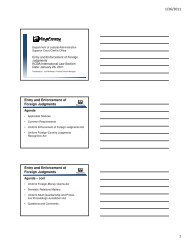Effective Drug Control: Toward A New Legal Framework
Effective Drug Control: Toward A New Legal Framework
Effective Drug Control: Toward A New Legal Framework
Create successful ePaper yourself
Turn your PDF publications into a flip-book with our unique Google optimized e-Paper software.
The U.S. Supreme Court struck down a Massachusetts law banning tobacco<br />
billboards from within 1000 feet of schools and requiring tobacco ads at point of sale to<br />
be 5 feet off the ground if children under the age of 18 were admitted into the store. The<br />
Court held that the statutes were more extensive than necessary. 624 The Supreme Court<br />
also struck down a Rhode Island statute prohibiting billboard advertising by liquor stores<br />
as a violation of the First Amendment, 625 as was a Pennsylvania law banning<br />
advertisements for alcohol in college newspapers. The judge in that case cited the state’s<br />
heavy burden when restricting free speech, saying the government had not proven that by<br />
banning the ads in the school newspapers, underage drinking would diminish, especially<br />
when students are exposed to so many other advertisements for alcohol on television, the<br />
radio and other non-college newspapers. 626<br />
One way to prohibit advertising is by the state to include in the contracts with its<br />
suppliers that they will have no claim of trademark of its product and cannot advertise or<br />
promote its product. The supplier would have to agree to these provisions in order to<br />
enter into business with the state. 627 Under the Constitution, for the state to place any<br />
limitations on advertising, it must serve a legitimate public interest in order to comply<br />
with the First Amendment. In addition, under Washington State law, the state can<br />
prohibit a trademark on a good or service which “consists of or comprises immoral,<br />
deceptive, or scandalous matter.” 628<br />
The Importance of Counter-Advertising<br />
Just as important as state restrictions on advertising would be aggressive, statesponsored<br />
counter-advertising. As an essential part of a public health strategy, statefunded<br />
education, public service messages and other forms of communication would<br />
foster the normative changes needed to reduce problematic substance use. The very best<br />
example of such normative change through public service counter-advertisement is the<br />
recent success in drastically reducing tobacco consumption over the course of the last<br />
three decades in the United States, accomplished without having incarcerating anyone.<br />
The success of counter-advertising regarding tobacco has depended on many<br />
factors:<br />
• adequate, long-term funding;<br />
• ability to administer the campaign free from political interference (including<br />
prohibiting the tobacco industry from being involved in the planning or<br />
administration of the campaign);<br />
• a broad-based focus rather than one exclusively targeting children; and<br />
• ability of the campaign to be complementary of other tobacco control activities<br />
conducted at the federal, state and local levels (e.g. support for indoor smoking<br />
regulations). 629<br />
The Washington State Liquor <strong>Control</strong> Board is considering a legislative proposal<br />
to promote the counter-advertising of alcohol. The legislation would create an alcohol<br />
education advisory council separate from the Liquor <strong>Control</strong> Board to develop,<br />
implement and support statewide public education programs aimed at reducing alcohol<br />
misuse and abuse among youth and adults in Washington State. 630



